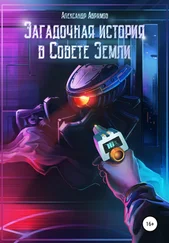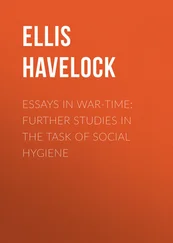Александр Абрамов - The Time Scale
Здесь есть возможность читать онлайн «Александр Абрамов - The Time Scale» весь текст электронной книги совершенно бесплатно (целиком полную версию без сокращений). В некоторых случаях можно слушать аудио, скачать через торрент в формате fb2 и присутствует краткое содержание. Жанр: Фантастика и фэнтези, на английском языке. Описание произведения, (предисловие) а так же отзывы посетителей доступны на портале библиотеки ЛибКат.
- Название:The Time Scale
- Автор:
- Жанр:
- Год:неизвестен
- ISBN:нет данных
- Рейтинг книги:4 / 5. Голосов: 1
-
Избранное:Добавить в избранное
- Отзывы:
-
Ваша оценка:
- 80
- 1
- 2
- 3
- 4
- 5
The Time Scale: краткое содержание, описание и аннотация
Предлагаем к чтению аннотацию, описание, краткое содержание или предисловие (зависит от того, что написал сам автор книги «The Time Scale»). Если вы не нашли необходимую информацию о книге — напишите в комментариях, мы постараемся отыскать её.
The Time Scale — читать онлайн бесплатно полную книгу (весь текст) целиком
Ниже представлен текст книги, разбитый по страницам. Система сохранения места последней прочитанной страницы, позволяет с удобством читать онлайн бесплатно книгу «The Time Scale», без необходимости каждый раз заново искать на чём Вы остановились. Поставьте закладку, и сможете в любой момент перейти на страницу, на которой закончили чтение.
Интервал:
Закладка:
‘I’ve found an ideal hiding place,’ he said in Polish. ‘All the letters fit, you’ll see.’
He took a bundle of letters in Iongish envelopes and laid them in the artificial depression in the book. Then he brushed glue on the uncut pages alongside the depression and pressed them down to conceal the letters.
‘Now we shake it,’ he shook the book, holding it by its bound covers. ‘You see, nothing falls out. Even Poirot wouldn’t find them.’
I was silent and motionless, not knowing what to do.
‘Why are you silent, Elzbeta?’ he said, growing cautious, and then cried out, in English this time: ‘Who’s there? Stay where you are!’
He threw down the book and grabbed a pistol from the table. The barrel had been lengthened by a silencer. Since he held it so accurately aimed in my direction, it was obvious that his blindness in no way impeded his handling of the weapon.
‘The least movement and I’ll shoot. Who are you?’ he asked. He was standing half turned towards me, not looking, but listening, like all blind people. Without replying I quietly took a step backwards. At once there was a click – it was a click, not a shot. The bullet cut into the plaster near my ear.
‘You’re mad,’ I said in Polish. ‘What’s that for?’
‘You’re a Pole. I thought so.’ He wasn’t in the least surprised, and did not lower the pistol. ‘Come to the table and sit opposite me. And don’t try to get the gun, I’ll hear. Come on.’
Cursing myself for this idiotic adventure, I went to the table and sat down, stretching out my legs easily in front of me. The barrel of the pistol followed in my orbit. Now it stared me in the chest. I could have grabbed it were I not convinced that it would fire first.
‘You’re from Copecki?’ the blind man asked.
‘I don’t know anyone of that name,’ I said.
‘Where are you from then?’
‘From Poland.’
‘How long ago?’
‘Since December last year.’
‘Don’t lie.’
‘I could show you my passport, but you…’ I stopped in confusion.
‘You mean you’re a communist?’ he broke in.
‘That’s right,’ I said angrily. That question was beginning to get on my nerves by now.
‘Why are you here?’
I told him.
‘For some reason, I believe you,’ he said thoughtfully, ‘but… you saw the hiding place.’
I glanced at the book with its bas-relief of Mickiewicz.
‘And the letters,’ he added threateningly.
‘To hell with your letters.’
‘Then we’ll wait for them to come for them. They’ll come without fail. They must.’
‘Who are “they”?’ I asked.
‘Sh!’ he whispered and listened, stretching out his head in an odd way, not like a man at all, but like the Ear in Grimm’s fairy tale. I couldn’t hear anything. Silence mingled with the sound of rain outside the window surrounded me.
‘Has someone come in?’ I asked.
‘Not a sound,’ he whispered. They haven’t come in yet. Now they’re opening the door with a skeleton key. They’ve crossed the platform, they’re coming.’ He said this almost soundlessly, just moving his lips. I only heard the faint tap of metal-shod heels in the corridor.
‘You stay here. I’ll go behind the curtain. Don’t under any circumstances tell them where I am. And don’t be afraid. They won’t start shooting, they need the letters. Say that they’re in the drawer next to the divan. All right?’
I nodded. Moving as lightly and freely as a ghost, he disappeared behind the curtain which partitioned the room in its farther corner. I remained seated in the same position expecting the worst.
Two men in wet raincoats came into the room carrying automatics. One of them wore a crushed fedora pulled down low over his eyes. The other was dark and unshaven, his wet forelock twisted into ringlets. He shook himself like a dog as it leaves the water.
‘Where’s Ziga?’ they asked together and in Polish. I understood now why the blind man had not been surprised that I was Polish.
‘I’m waiting for him’ – I said the first thing that came into my head.
The unshaven one looked around the room and suddenly fired a burst from his automatic into the folds of the curtain. I expected to hear cries, groans, but nothing happened. Then they both turned to me.
‘This is the end,’ I thought and scarcely managed to get out: ‘You’ve come for the letters? They’re in the drawer.’
‘Where?’
I pointed to the chest-of-drawers near the pillow of the divan. ‘Go and open it,’ ordered the unshaven one.
I went, and with trembling hands that I could no longer control I opened the drawer. Gleaming white at the bottom of the drawer was a bundle of Iongish envelopes. The unshaven one pushed me away with his automatic and looked inside.
‘They’re here,’ he said and grinned. He didn’t have the chance to say any more. That familiar click sounded several times from behind the curtain and both the man in the fedora and his unshaven friend crashed to the floor almost simultaneously. I don’t remember any more which hit the floor first, the backs of their heads or the automatics that slipped from their hands.
‘That’s that,’ the blind man laughed, emerging from behind the curtain.
He touched first one and then the other with his foot and then drew back, like a bather testing the temperature of the water.
‘You’ve done well and earned a reward, Mr Stranger,’ he said, holding out to me what looked like a large coin. ‘Take this. This medal may come in useful to you. “He lived for the fatherland and died for honour”,’ he laughed and then suddenly reverted to a whisper, again listening for something. ‘They’re coming for me already. Don’t come with me, I move about here in the dark like a cat. Go out a minute or two after me. I’ll leave the door open. And don’t delay. An encounter with the police in such circumstances is far from pleasant.’
He took the book which had the letters glued into it from the table and, without putting on a coat, went out of the room. His step never hesitated. Nothing creaked in the corridor, neither the floorboards nor the door. He moved completely soundlessly.
I waited for two minutes, examining the medal I had received: a dull circle of bronze; on one side a bas-relief of a head in a laurel wreath, like the head of a Roman emperor. On the other, a girl in a tunic embraced an urn on an ornate pedestal. Around the imperial head wound an inscription in Latin lettering: Josef Xiaze Poniatowski. Around the girl in the tunic in lettering of the same style wound the words I had already heard that evening: Zyl Dla Oyczyzny. Umarl Dla Slawy. Poniatowski? What did I know of him? Napoleonic marshal and relative of the last king of Poland, outstanding military commander, and a political failure whom Napoleon denied the cherished Polish crown. Bonaparte tricked him, Poland was not restored and even in the hurriedly-created Duchy of Warsaw, Poniatowski was only given the Ministry of War. He died splendidly in one of the Napoleonic campaigns, forgotten by the Emperor whose throne was already beginning to totter. It was not Bonaparte, but his own Polish countrymen who had then this medal struck, inscribing it with the words: ‘He lived for his fatherland, he died for honour’. This medal must have had a great appeal for certain contemporary Polish emigrants, but not for me. It was inaccurate, misdirected. For what honour? Whose? The unworthy, too, have died for honour, even Herostratus. I smiled inwardly at the sentiment with which the medal had been given to me. When and how could it possibly prove useful to me?
I thrust it into my pocket and, without a backward glance at the corpses, left the room. The door to the street was ajar, creaking on its hinges. I was met by an empty street, the spatter of rain on the asphalt, the yellow light of the streetlamps glowing in a diamond network of raindrops. Once again I raced across the street to the awning where Leszczycki was standing. He was there now, staring into the streams of rain dancing in a patch of light. And once again I seemed to see the streams of rain double up like a man seeing double when overcome by vertigo.
Читать дальшеИнтервал:
Закладка:
Похожие книги на «The Time Scale»
Представляем Вашему вниманию похожие книги на «The Time Scale» списком для выбора. Мы отобрали схожую по названию и смыслу литературу в надежде предоставить читателям больше вариантов отыскать новые, интересные, ещё непрочитанные произведения.
Обсуждение, отзывы о книге «The Time Scale» и просто собственные мнения читателей. Оставьте ваши комментарии, напишите, что Вы думаете о произведении, его смысле или главных героях. Укажите что конкретно понравилось, а что нет, и почему Вы так считаете.


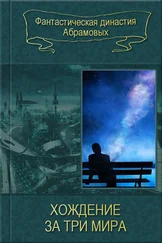
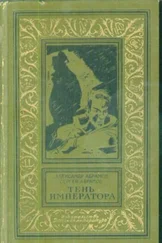
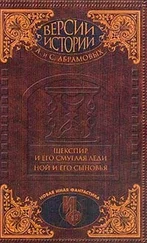
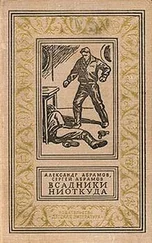
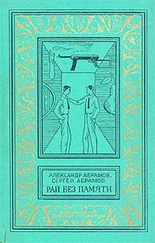
![Александр Абрамов - Юный техник [35 самодельных приборов и моделей для школы, пионерского отряда и дома по оптике, фото, радио, электротехнике и паротехнике.]](/books/416151/aleksandr-abramov-yunyj-tehnik-35-samodelnyh-prib-thumb.webp)
